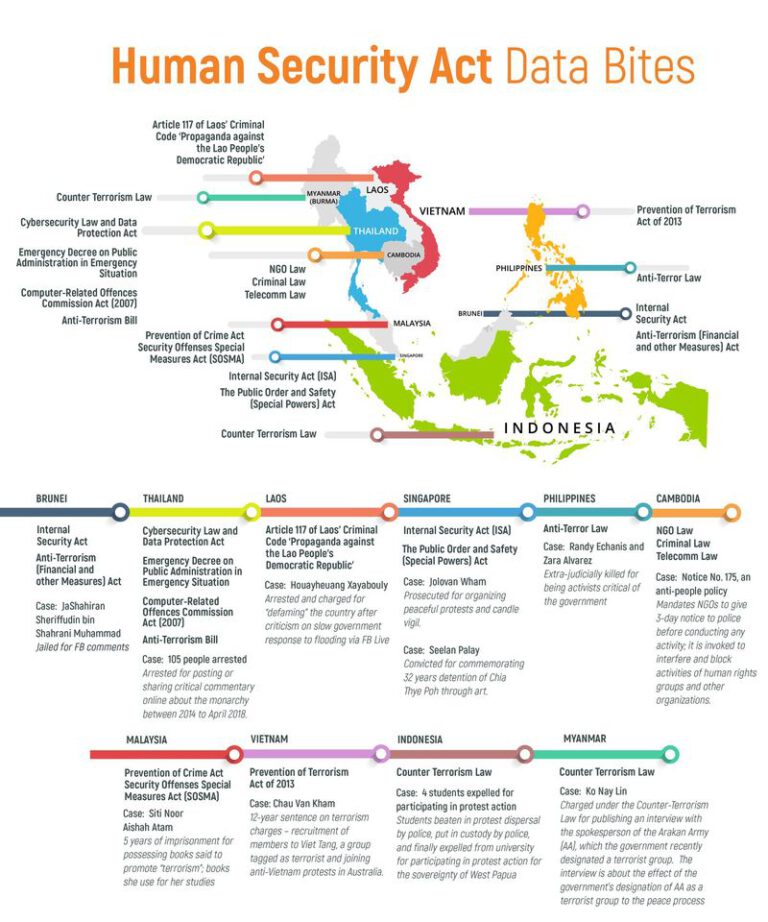










Throughout the Pacific Region, specifically in Southeast Asia, violations of people’s rights are pervasive. From poverty, inequality, widespread unemployment, privatization of social services such as health, education, and shelter, many governments fall short in responding to the people’s legitimate needs. The outbreak of COVID-19 has exposed and highlighted these shortcomings. Instead of addressing these long-drawn-out concerns, Southeast Asian governments are deaf to their people’s calls and promulgate policies and agreements that will only benefit them.
In order to address the emerging opposition, many governments have followed the US’ militaristic framework of governance by fostering a culture of fear through enforcing draconian measures. The goal is to restrain critics and weaken people’s movements that fight back. The US’ influence in ensuring the ground for imperialism is strengthened through military financing, joint exercises, and other key military activities within countries.
Southeast Asian governments have also used the law to quash people’s demands for their rights and paint their assertions as a threat to national security. Anti or counter-terrorism laws passed have redefined the term “terrorist” or “terrorism” to vaguely cover any form of defiance, may it be through online criticism or peaceful demonstration. The redefinition has relegated universally accepted civil liberties and freedoms at the backseat.
The existence of these laws has only exposed the stronghold of imperialist powers over the region and laid bare its influence on the countries’ sovereignty and governance. These policies further enable the culture of impunity and the criminalization of dissent. Moreover, these enactments have justified the killings of activists, human rights defenders, labor and peasant leaders who have been arbitrarily tagged as enemies of the state. For example in the Philippines, with the passing of the Anti-Terrorism Law earlier in July, the definition of a “terrorist” can target even the mildest critic of the government, may it be through online platforms, joining protests and demonstrations, or being part of legal human rights organizations.
Duterte’s Anti-Terrorism Law has enabled state forces to intensify its full-blown crackdown on activists and human rights defenders, with land rights and peace activist Randy Echanis of Anakpawis and human rights defender Zara Alvarez of KARAPATAN as its latest victims. These scenarios do not stray away from the overall picture of human rights violations in the rest of the region.
“Anti-Terrorism Laws in Southeast Asia” is the first of the APRN’s infographic series on “State-Sponsored Terror in the Asia Pacific: Repression and Resistance”. This series aims to expose how governments do not hesitate to use legislation and state forces to strengthen the current dispensation – the rule of corporate greed on a global scale at the expense of the disenfranchised majority.
#ActivismNotTerrorism
#ActivistsNotTerrorists
#StopTheKillings
#EndStateImpunity